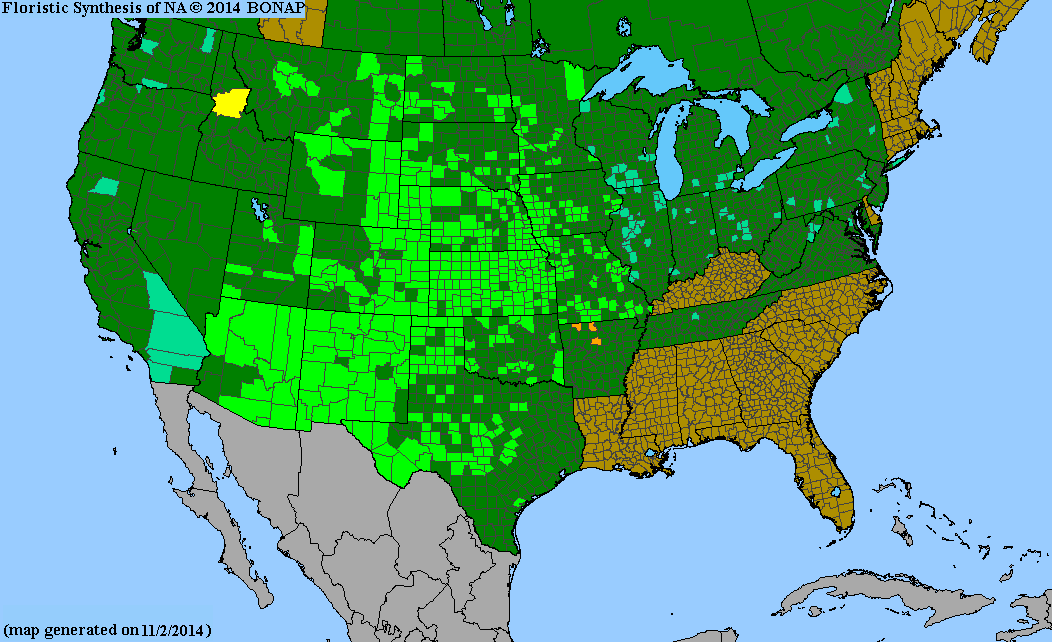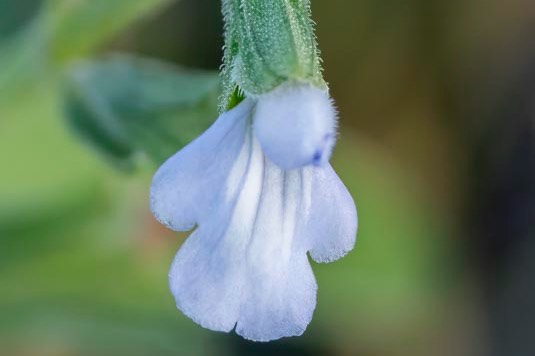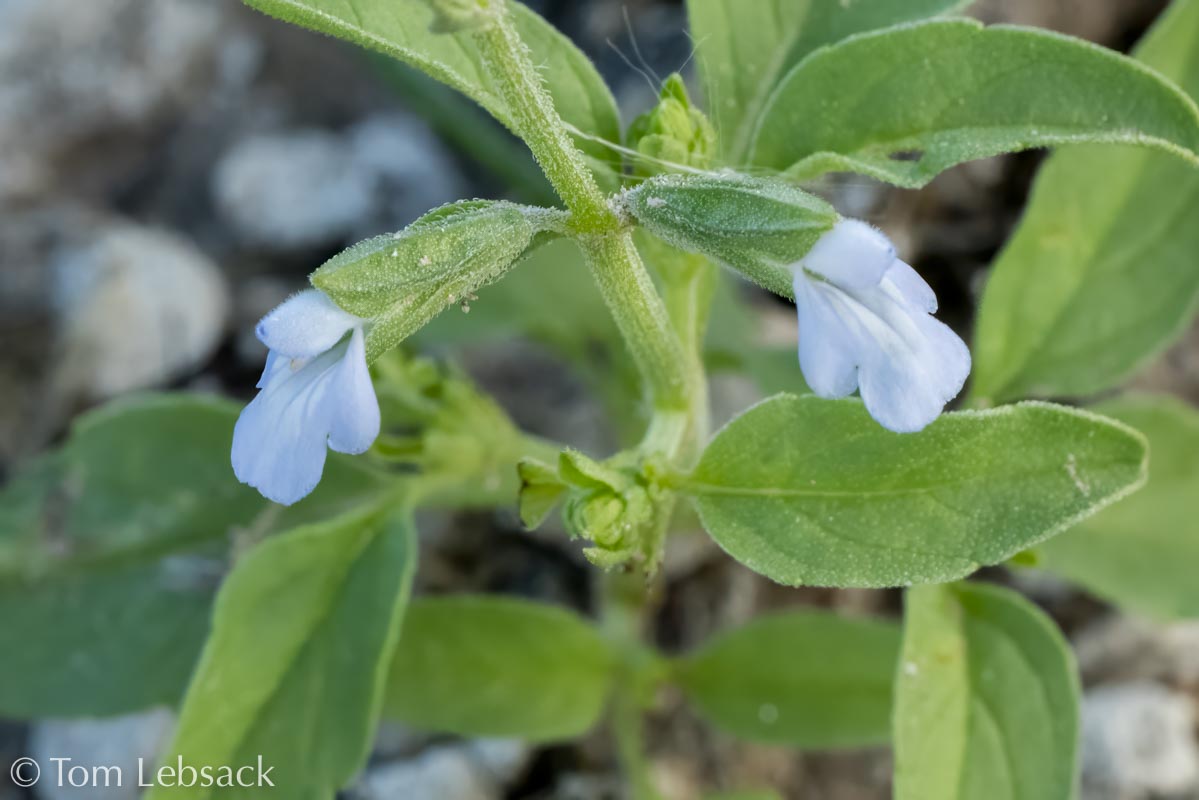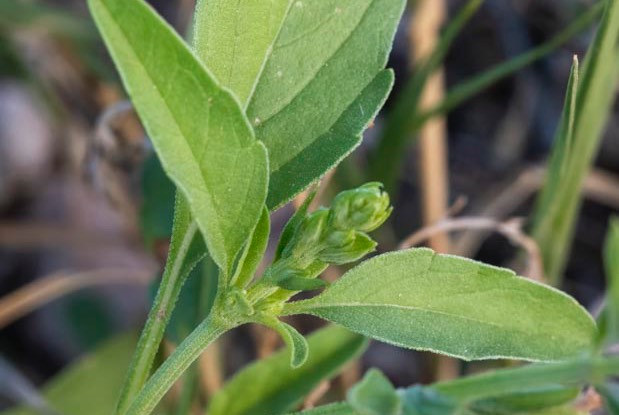Texas Wildbuds
Salvia reflexa
(Lance-leaf Sage)
| Scientific Name | Salvia reflexa | USDA PLANTS Symbol | SARE3 |
| Common Name | Lance-leaf Sage | ITIS Taxonomic Serial No. | 32692 |
| Family | Lamiaceae (Mint) | SEINet Reference |
Click Here |
| Description |
Habitat: Dry gravelly clay or rocky soils on flats, ledges and slopes. Plant: Bushy annual, erect main stem with many spreading branches on mature plants; 12 to 24 inches tall; stem surfaces either smooth or covered with very fine incurved hairs. Leaves: Opposite leaves with lanceolate to oblong-linear blades, up to 2 inches long and almost 1/2-inch wide; tapering to a slender petiole 5/8-inch long; margins are entire or serrulate and often cupped upward; leaves becoming smaller into the flower cluster where they become less than 1/10 inch long and scale-like. Inflorescence: Opposite pairs of light blue flowers (or rarely whorls of 3 or 4), along spikes from the upper leaf axils; 2-lipped corolla with the upper lip hood-shaped (or 2-lobed), hairy on the outside; the lower lip is 3-lobed and spreads or droops; calyx lobes are also two-lipped; two stamens hidden under the upper lip hood, single style visible and curving around the hood. Bloom Period: May to October. Reference: "Manual of the Vascular Plants of Texas" by Correll and Johnston, Wildflowers of Texas" by Michael Eason, Minnesota Wildflowers and SEINet. |
BONAP Distribution Map Map Color Key Map Color Key |
Texas Status: Native |
Banner photo of Castilleja indivisa and Lupinus ssp. taken along FM 1323 north of Johnson City, Blanco County
© Tom Lebsack 2025
Every attempt is made to provide accurate, up-to-date, and relevant information, but the completeness or accuracy of any information presented on this website cannot be guaranteed. I use authoritative references to insure high standards of accuracy and review and update the information frequently.



